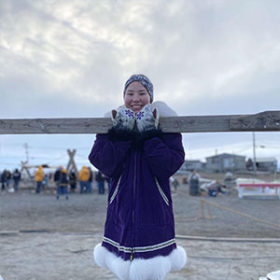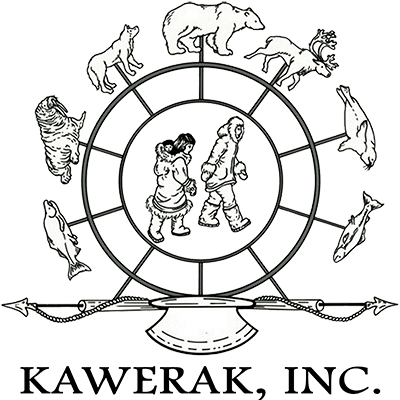What drew you to the Caleb Scholars Program? Do you have a personal story about meeting Caleb, connection to his legacy, or connection to our Program mission?
I was drawn to the Caleb Scholars Program because I was interested in the mentorships, conferences, webinars, and training they provide their scholars.
What does conservation mean to you? How do you engage with conservation at school and/or at home?
The first thing I think about when I hear inuit-led conservation advocacy is our inupiaq value Qiksiksrautiqaġniq iñuuniaġviŋmun — respect for nature. Conservation advocacy to me is more than “keep our communities clean,” it’s about preserving the diversity and health of our land. I strongly believe in One Health, whose mission statement is: “recognizing that human health, animal health, and ecosystem health are inextricably linked”.
Last year I took a writing class that focused on biodiversity and extinction. We read many articles and essays that spoke solely on the resilience and restoration of nature for Indigenous lands. Our Indigenous peoples have lived off the land and sustained it for thousands of years, and we should be working together to sustain it for thousands more.
What are your future educational and career goals? What are the top three things that are moving you toward those goals?
My goal is to further my education in medical school and return home as a pediatrician. Setting an example for future Alaskan Natives who want to pursue higher education is what motivates me the most. Most of the time I absolutely love my field of study, which makes learning easier and feel less like a chore. I’m grateful for my friends and family for the tremendous amount of support, for listening to me ramble about my ambitions, and also for giving me words of encouragement when times get tough.
Can you share a memorable story from your past when you felt a relationship to the ocean or land?
I grew up without a father, grandfather, and uncle to take me hunting or camping. I was raised by my grandmother, who was an inupiaq teacher. Although we didn’t go hunting as a family, we were still blessed with niqipiaq from our local hunters. As a young girl she showed me how to piḷak (butcher) every chance she could, and I would watch her prepare our freshly caught dinners.
Last year (2020) was the first time I went camping near the mouth of Iqaluligauraq, a river that flows into Admiralty bay. I helped Trina Paul and her family build a floor at the camp. They taught me how to cut whitefish, and brine it to make pivsi (dry fish). It was so peaceful to be away from town, free from all vehicular noises. It was everything I had wished for and more.

